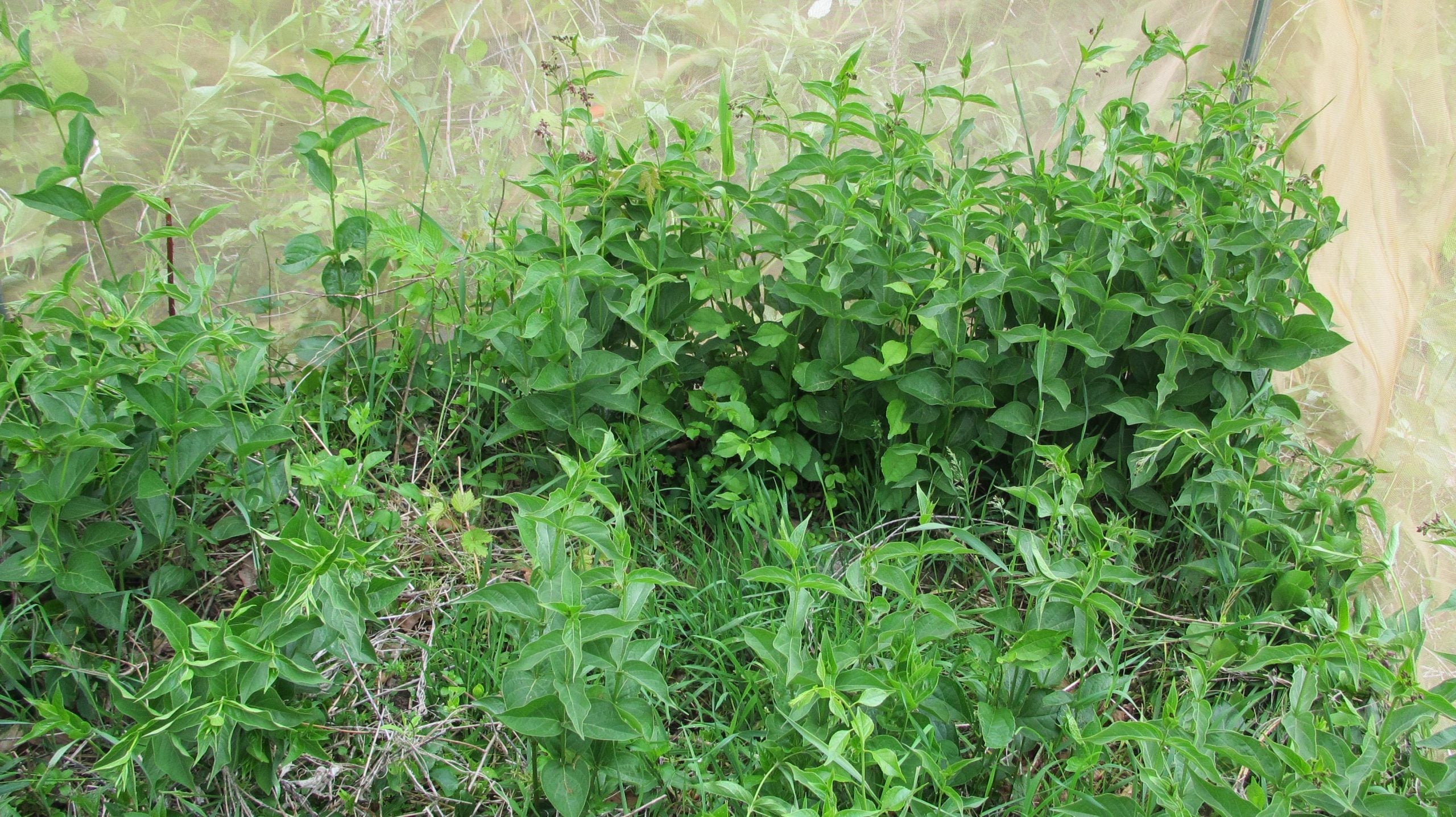In North America, there are two species of invasive swallow-worts: black swallow-wort (Vincetoxicum nigrum) and pale swallow-wort (V. rossicum). Both species have been recorded in 21 states extending east to west in the U.S. and as far north as Ontario and Quebec in Canada. Swallow-worts are native to Europe and therefore have no native herbivores in North America. The most common species in Rhode Island, black swallow-wort, was first recorded in North America as early as 1854 in Massachusetts. EDDMaps compiles data from across the United States and Canada, documenting the distribution of each species: V. nigrum and V. rossicum .
Research has found swallow-wort to be harmful to monarch butterfly populations. Because swallow-wort chokes out native milkweed species, monarchs often lay their eggs on swallow-wort plants, itself a member of the milkweed family. Larvae cannot feed on swallow-wort and, subsequently, the caterpillars die which further reduces the already endangered monarch populations. To learn more about the impact swallow-wort has on monarch populations, read the EcoRINews article and Monarch Joint Venture’s flyer.
Advances have been made in terms of biological control of swallow-wort. Hypena opulenta is a moth species native to Europe whose larvae are regional herbivores of swallow-wort species. In August 2017, URI received a permit to release H. opulenta throughout Rhode Island and other parts of New England.
The URI Biocontrol Lab works throughout the summer and fall to rear multiple generations of H. opulenta. Hypena opulenta was first released in Rhode Island in 2017 and the URI Biocontrol Lab has been releasing adults every summer since in Rhode Island, Massachusetts, Maine, New York, and Connecticut. Releases are monitored for establishment of healthy populations, impact on near-by swallow-wort, and spread of population, with the eventual goal of establishing self-sustaining populations. Visit our “Release of H. opulenta” page to learn more about URI Biocontrol’s efforts to combat invasive swallow-wort.
Related Documents
- Field Release of Hypena opulenta for Biocontrol of Swallow-wort August 2017
- Swallow-wort Biocontrol Brochure
Related Links






